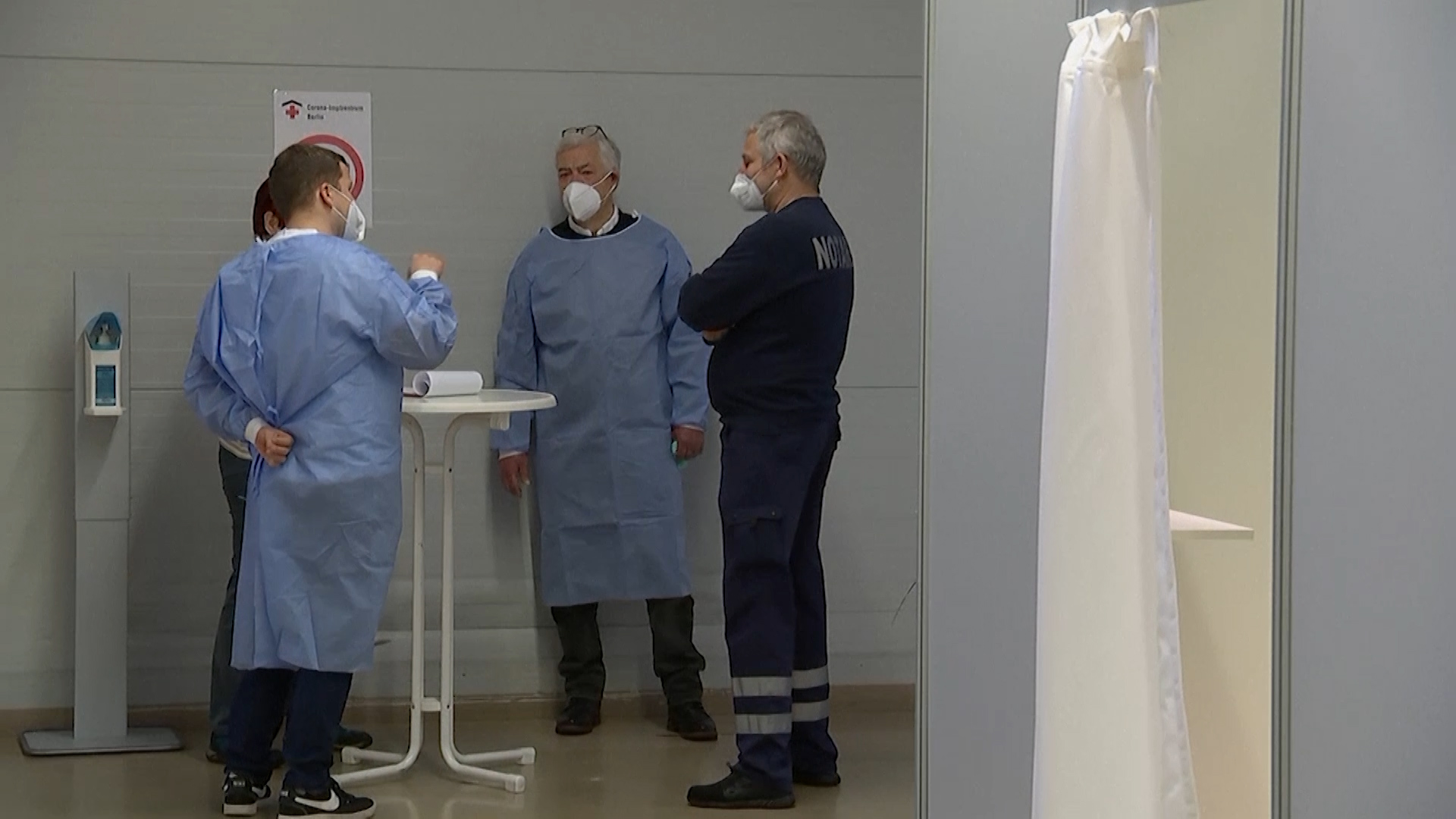03:02

A growing pool of data is painting a clearer picture of how effective the Oxford University-AstraZeneca vaccine is at preventing COVID-19, including in older patients.
But in Germany, the UK-made jab remains only available for patients aged between 18 and 64, with the country's medical regulator continuing to stand by its decision to only offer provisional approval for that age group.
There's increased expectation that the age limit may soon be lifted. However, health experts worry the initial approval process has caused mixed messaging, and led to the emergence of hesitancy in Germany towards the Astrazeneca vaccine.
READ MORE
Should I worry about an asteroid hitting the Earth?
Daft Punk's farewell video
Spain rapper riots: What you need to know
Berlin had been pinning its hopes on vaccine deliveries helping to speed up the end of lockdown restrictions. But the country's inoculation drive, already experiencing delays, now faces the added problem of doubts emerging within key patient groups over the effectiveness of the jab.
Convincing the public
The British-Swedish firm has faced negative headlines in Germany, ranging from delivery delays to a very public debate over their vaccine's efficacy in the elderly.
For seniors, like 79-year-old Berlin resident Peter Wilkitzki, that debate has lowered the standing of AstraZeneca's jab compared to others on the market.

The UK-made AstraZeneca vaccine has received negative coverage in Germany's press. /Jens Schlueter/AFP
The UK-made AstraZeneca vaccine has received negative coverage in Germany's press. /Jens Schlueter/AFP
"This is a real problem. I have the impression that our politicians now with a lot of energy, are rolling back and saying 'My God! Take it! Take it! It's there,'" he told CGTN Europe.
"But people are saying 'No, you told us it was worse than BioNTech.' I think this will last for some time until people accept it," he said.
Assurances from the top
With reports emerging that some patients have started cancelling their vaccine appointments, German politicians have scrambled to urge citizens not to shun the British jab.
"All three vaccinations, including AstraZeneca, do what they are supposed to do and that is to effectively protect people from getting sick from COVID-19," said German Health Minister, Jens Spahn.

With new vaccination centers opening, Germany's scientific community has questioned the decision to delay approving the AstraZeneca jab for all adults. /Michael Sohn/AFP
With new vaccination centers opening, Germany's scientific community has questioned the decision to delay approving the AstraZeneca jab for all adults. /Michael Sohn/AFP
"Nobody that had the first and second treatment with AstraZeneca, had to be admitted to a hospital afterwards as compared with those not vaccinated, so it protects [people]," he added.
Much of Germany's scientific community has questioned the regulator's decision to delay approving the vaccine for all adults.
There's increased concern that decision may have now led to people simply making up their minds to wait out getting their jab – something that will inevitably delay the country's recovery from the pandemic.

